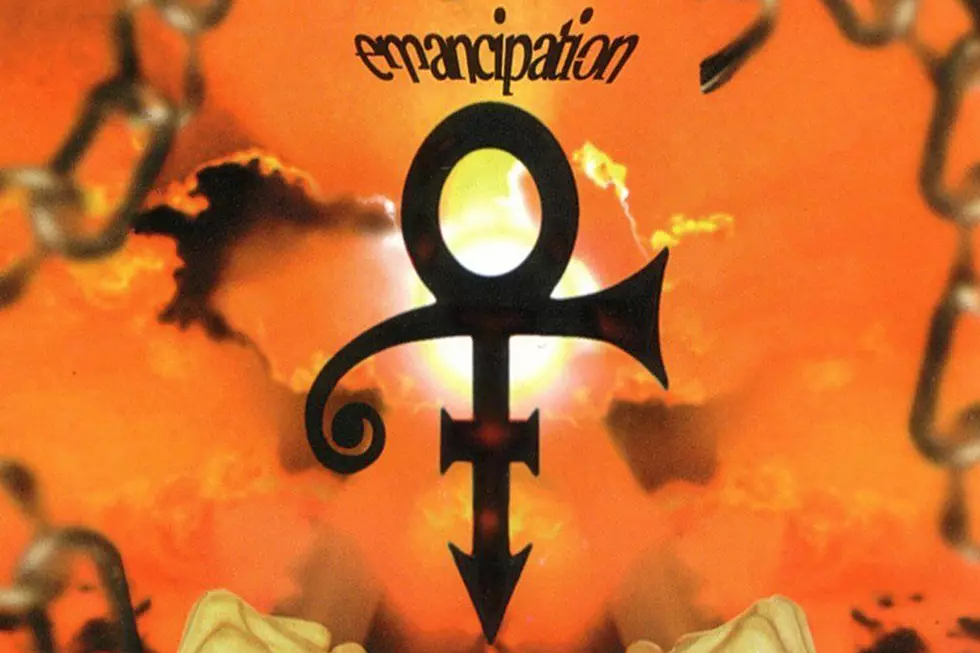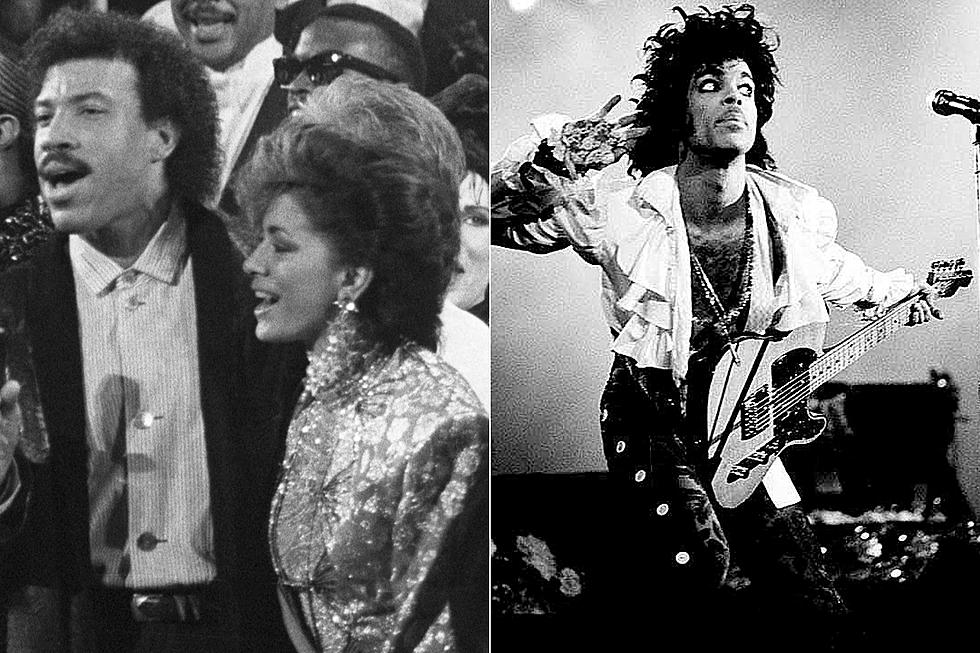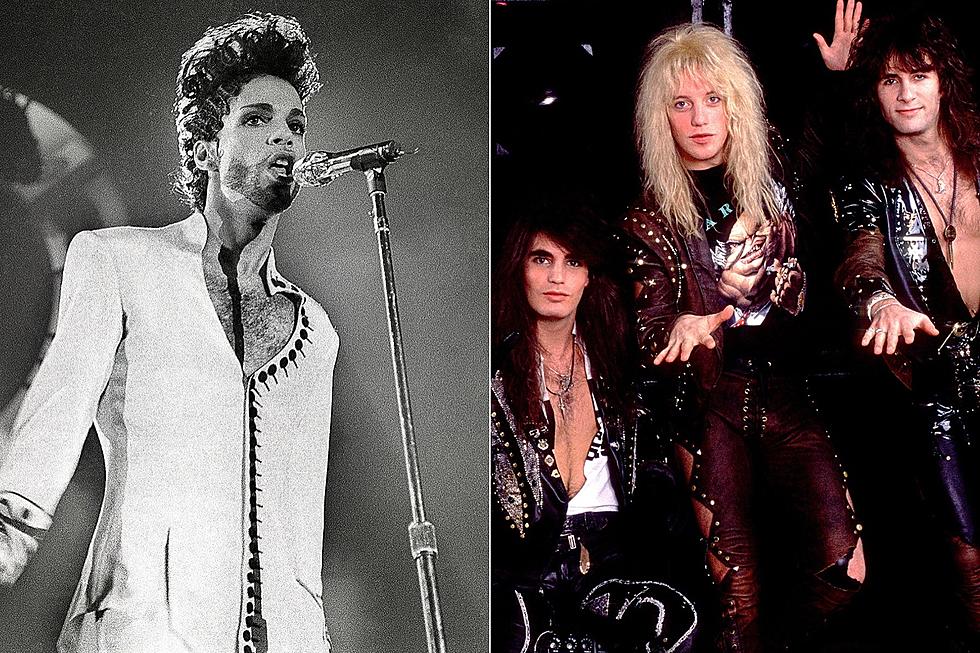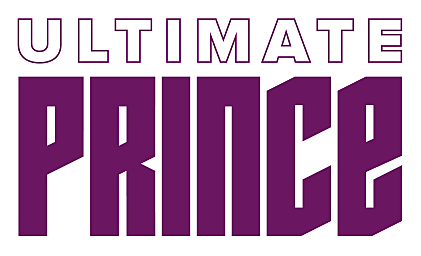
Prince Celebrates His ‘Emancipation’ from Record Label Restrictions
Prince was one of the world's biggest stars when he picked a public battle with longtime label Warner Bros. in the early '90s, so the idea that he had any reason to be unhappy with his record company struck some onlookers as more than a little ridiculous.
Yet as he pointed out repeatedly, it wasn't just about the money, and it definitely wasn't about the fame; instead, it was all about the one thing he'd always valued most as an artist — creative control.
Somewhat ironically, in an era that saw major artists taking greater extended periods between albums, Prince was fighting for the right to release more music. Always dazzlingly prolific, he'd reached the point where he had his own private full-service recording studio and a vast backlog of material, and he chafed at the reality that the label needed time to prepare for anything he wanted to put out. Whether it was to find a spot in the release schedule or to devise a publicity campaign didn't matter — the bottom line was that he was being dictated to after he felt he'd earned the right to steer his own artistic destiny.
Hear Prince Perform "Emancipation"
"The music, for me, doesn’t come on a schedule," he told the New York Times. "I don’t know when it’s going to come, and when it does, I want it out. Music was created to uplift the soul and to help people make the best of a bad situation. When you sit down to write something, there should be no guidelines. The main idea is not supposed to be, 'How many different ways can we sell it?' That’s so far away from the true spirit of what music is. Music starts free, with just a spark of inspiration. When limits are set by another party that walks into the ball game afterward, that’s fighting inspiration."
The impasse left Prince determined to get out of his contract, but instead of holding out or taking Warners to court, he took the approach pioneered by artists like Lou Reed — namely, futzing with his sound and/or image in a transparent bid to be so annoying that they'd want to get rid of him. He set about accomplishing this goal in various ways, including painting "slave" on his face in public, changing his name to an unpronounceable symbol, and rapidly fulfilling contractual obligations by releasing compilations and shelved material like The Black Album.
"People think I'm a crazy fool for writing 'slave' on my face, but if I can't do what I want to do, what am I?" he asked Rolling Stone. "When you stop a man from dreaming, he becomes a slave. That's where I was. I don't own Prince's music. If you don't own your masters, your master owns you."
Prince's dispute with Warner Bros. definitely made it easy for people to, as he put it, brand him a "crazy fool," but it didn't have an immediate or consistent impact on his sales. His albums didn't sell as well overall as they had in the '80s, but they still performed respectably — and the period also produced one of his biggest pop singles, the No. 3 hit "The Most Beautiful Girl in the World." Still, there was a definite air of anticipation around his long-simmering departure from the label, which he heralded with 1996's Emancipation LP.
The fruits of a new one-album deal with EMI, Emancipation found Prince flexing his newfound freedom by hopscotching between genres more furiously than before — and addressing his departure from Warner Bros. fairly explicitly in the title track, whose opening chorus reads "Emancipation - free to do what I want to / Emancipation - see you in the purple rain / Emancipation - free to do what I want to / Emancipation - break the chain, break the chain."
The musical scope covered by Prince on the triple-disc LP didn't make him many new friends at pop radio, where the set's singles failed to make an impression, but it also didn't scare off record buyers — Emancipation stalled just outside the Top 10 and went double platinum, his best sales showing since 1991's Diamonds and Pearls album. It isn't hard to imagine Prince taking a certain amount of satisfaction from proving he could score a hit without his old label's involvement, but again, it wasn't really about the numbers — it was about being able to make his music his way.
"I’ve been recording almost every day of my life, working on a vast number of styles," he told Rolling Stone. "I’ve always looked forward to the day when I would be free from any demands of any kind from anyone — free to do everything I want to do."
More From Ultimate Prince










